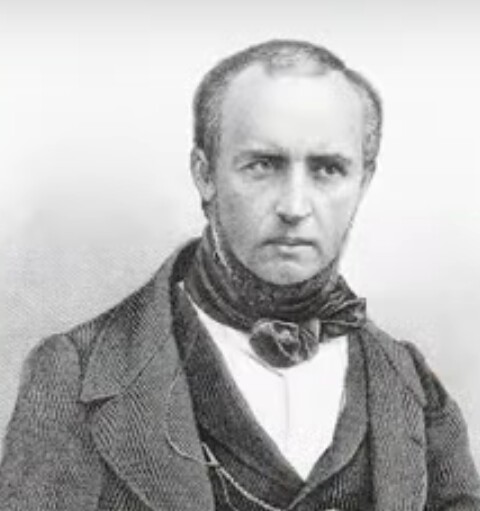
Prince Vladimir Odoevsky (1803-1869)
Odoevsky was multifaceted: in his youth, he composed poetry and music, but he also had time to become a chemist and a philosopher. He was the leader of a secret society called the “Lyubomudry” (The word Lyubomudry is a more Slavonic way of saying “philosophy”, a love of knowledge without the Greek etymology). Their general inspiration was the German philosopher Friedrich Schelling. This secret society had some radical members, and they burnt all their notes and documents after the Decemberist revolt of December 1825. However, it seems unlikely that Odoevsky himself sided with the rebel officers. (The Frolov “Philosophical Dictionary”, pub. 1981 described Odoevsky as a conservative). Some other members of the circle went on to become prominent “slavophile” conservatives, but Odoevsky wasn’t one of these either.
In 1826 he moved to Saint Petersburg and a few years later began publishing children’s stories. He is best known in Russia as the author of the short story, the Town in the Snuff box. See a video with the original language here: Городок в табакерке
He developed an early combination of chemistry and cookery, which came out as a recipe book under the pseudonym Dr. Puff.
In 1835 Odoevsky published 4338 - the first Russian sci-fi and one of the earliest in the world. My translation of this is available here. Among other things, his short story is notable for including a prediction of something similar to a blog - with “magnetic” writing. These messages are distributed, but the author can add updates which are reflected in all the copies instantaneously.
In later life, Odoevsky worked on educational reform, and published reading material aimed at ordinary people living in remote villages. He was an early example of what would become the idea of an “intellectual” in Russian society… and possibly also one of the sources for the character of Prince Myshkin in Dostoevsky’s The Idiot.
An important work of his is “Russian Nights” which appeared in 1844 as part of his collected works. However some parts of it were probably written in the 1820s and seem to be a fictionalised account of the conversations of the young Odoevsky and his “Lyubomudrys”. This novel was translated in the 1960s by Olga Koshansky-Olienikov and Ralph E. Matlaw. (there’s a review of the book with excerpts here https://ifyouwantthegravy.wordpress.com/2019/10/06/russian-nights-review/ )
For English speakers, the best source of information about Odoevsky is Neil Cornwell’s V.F. Odoevsky His Life, Times and Milieu (I don’t have this book with me at the moment, first published in the 1980s)
